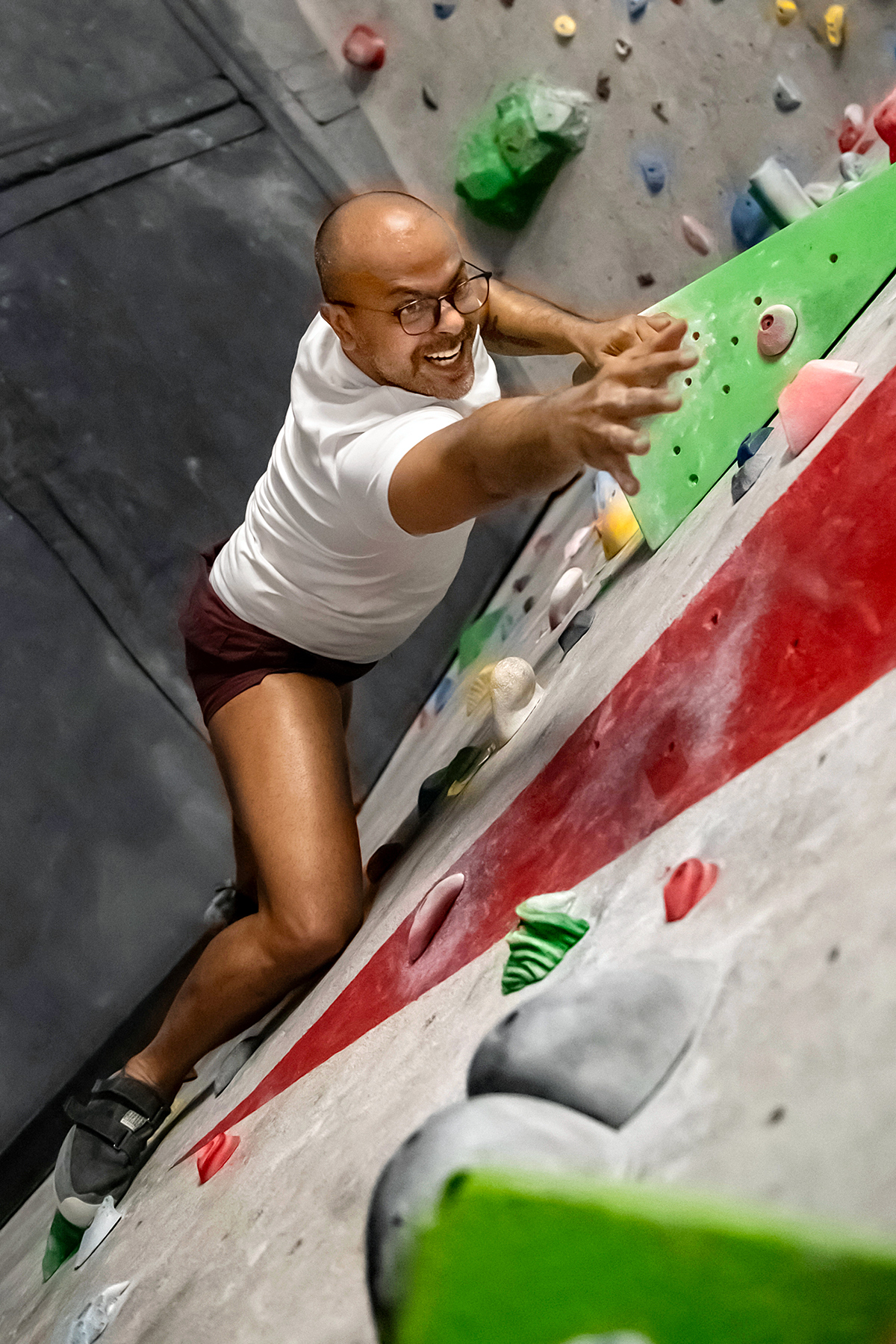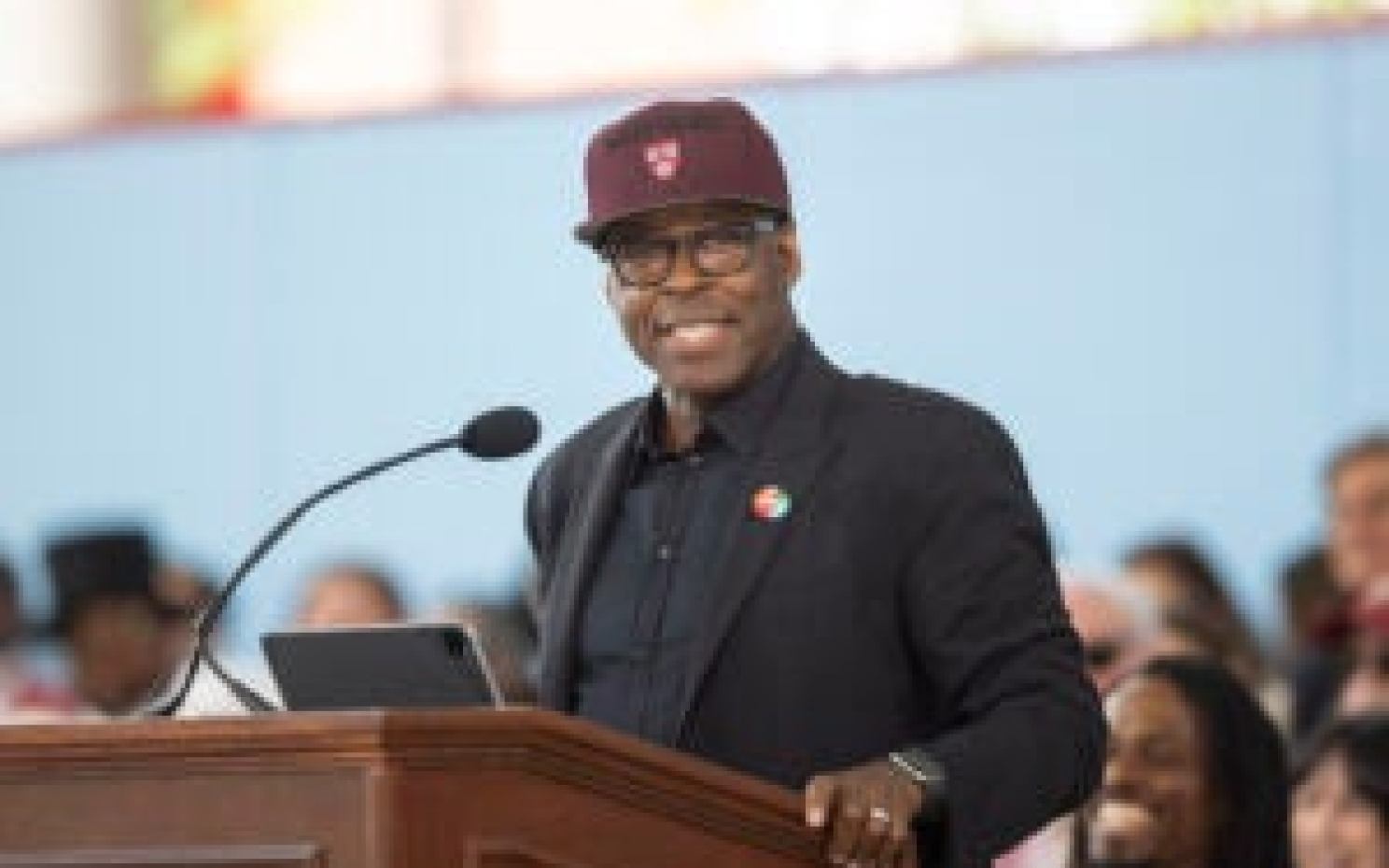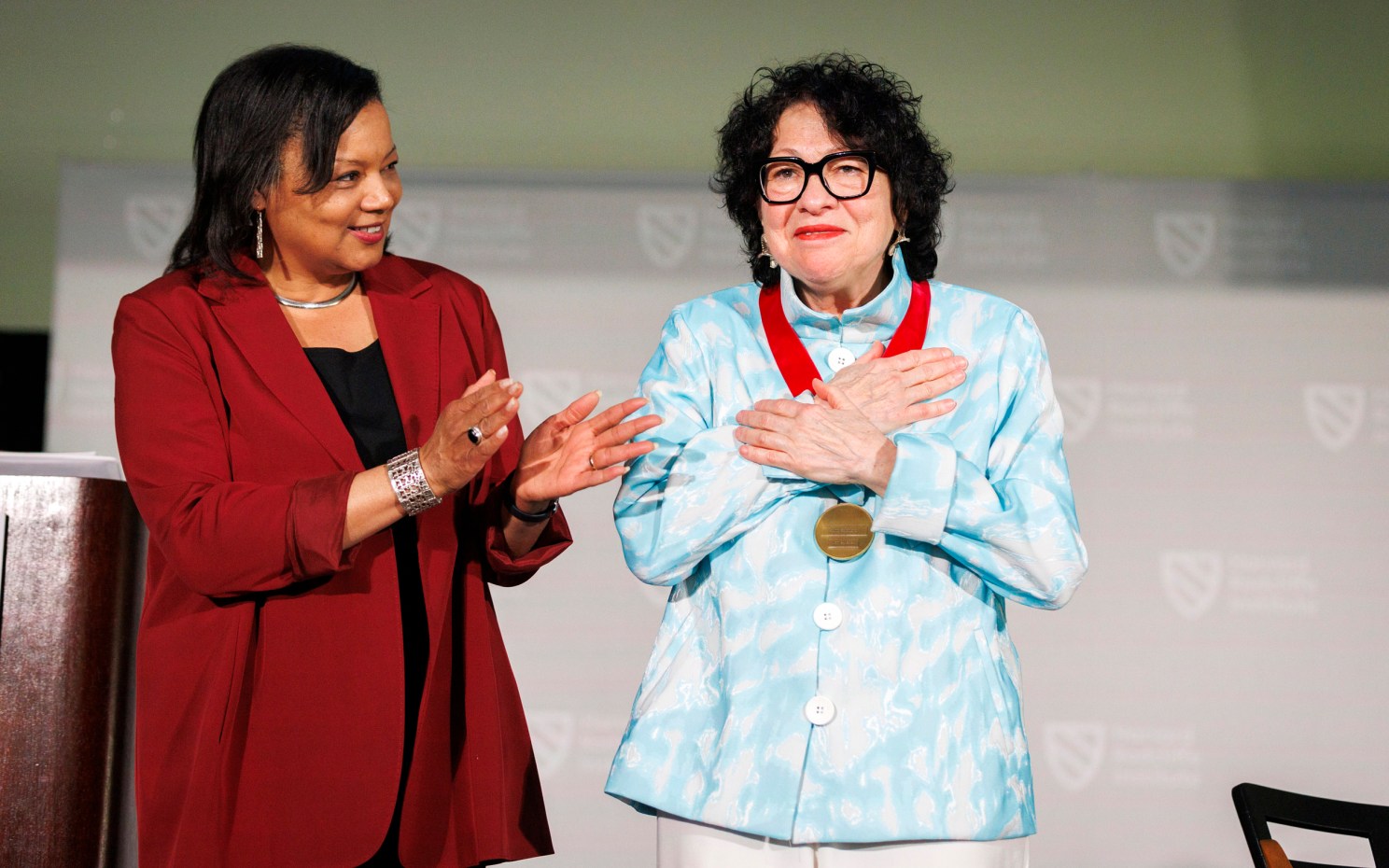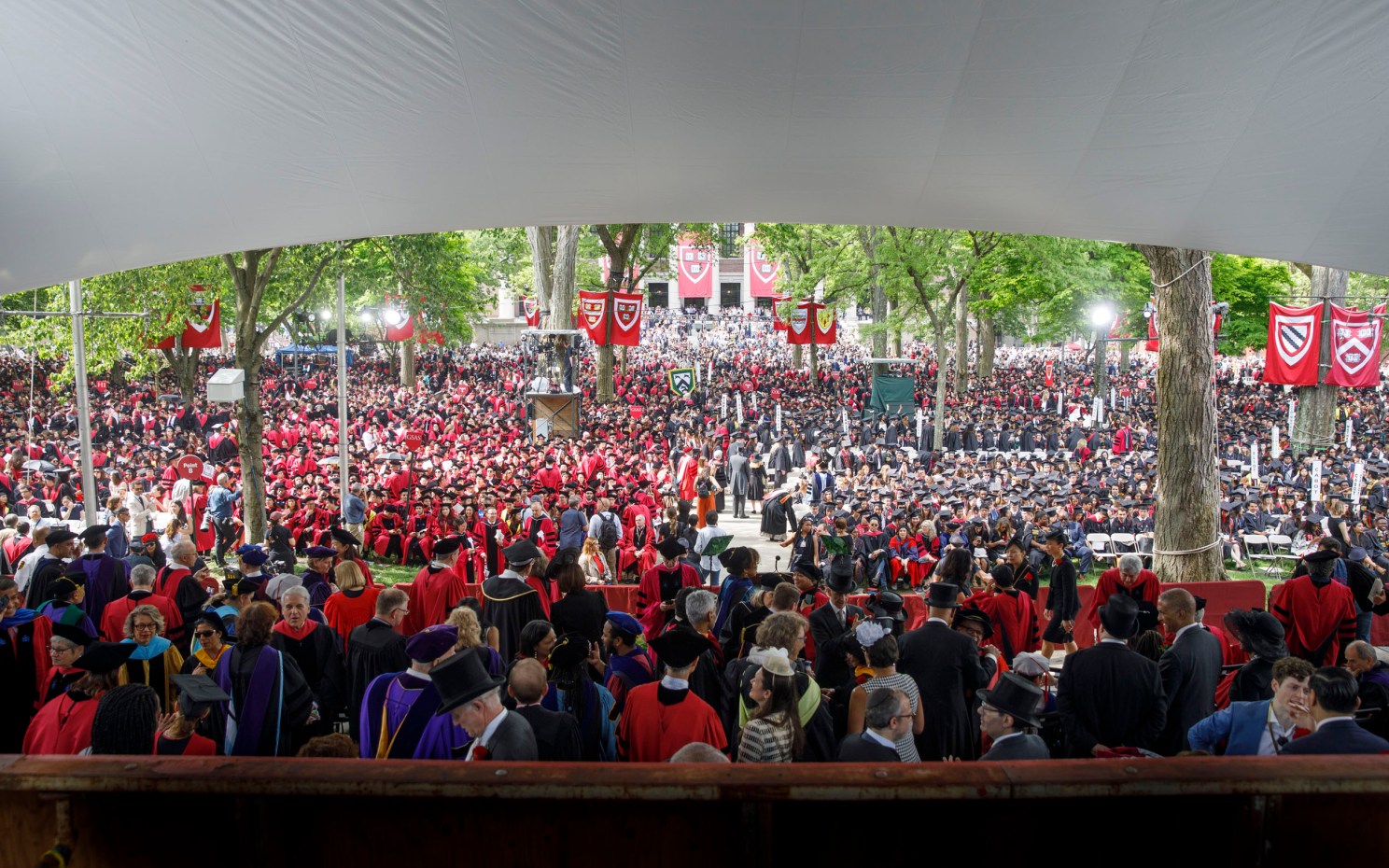
Jon Chase/Harvard Staff Photographer
Finding new ways to learn
Series of life-threatening medical problems changed Saif Kamal — but not his desire to pursue opportunity, help others do so too
Part of the Commencement 2024 series
A collection of stories covering Harvard University’s 373rd Commencement.
Saif Kamal is the kind of person who pursues opportunities and helps others do the same. Kamal was in his late 20s and working as head of design and marketing at the Dhaka Tribune, a newspaper in Bangladesh, when he got the idea for a startup — a business incubator for local entrepreneurs.
“That’s where I found out a lot of Bangladeshi young people were winning all these competitions, but they couldn’t transform their star ideas into proper startups, enterprises, or other sales coming in,” he said. “And I didn’t know what I wanted to do, but I knew why I wanted to do. I knew that an idea that can change the lives of millions cannot die just because a person is born here and not in a privileged place.”
To pursue his idea, Kamal found a mentor in India, and moved there to start his multinational Toru Institute of Inclusive Innovation. After three years in operation, he was chosen to go to the World Economic Forum in Davos Switzerland in 2017 as one of the “global shapers of the world.”
He didn’t know it then, but soon after he would be confronted with a series of life-threatening medical challenges that would change the trajectory of his life and eventually lead to the Harvard Graduate School of Education and a fresh start.
Riding the high from Davos, Kamal ended the year with his annual trip to reunite with Jamal, a close friend from his youth. The two vacationed in Singapore where, over drinks, they got to talking about their health.
“One day he’s like, ‘You know what? We should get a full-body checkup.’ I’m like, ‘Why?’ He said, ‘Because we’re getting older,’” Kamal recounted. “I said, ‘Speak for yourself.’”
The 35-year-old Kamal relented. The two made appointments before the vacation’s end. Expecting a clean bill of health, Kamal never would have predicted what happened next.
“The woman doing the echo[cardiogram] stopped and said, ‘You need to see a heart surgeon immediately.’”
One of Kamal’s heart valves had expanded to the point where if it increased just a fraction of an inch more, he would likely drop dead.
Kamal found a surgeon in Bangalore, India, and was in the hospital for nearly a month and a half while doctors tried to figure out what had caused the enlargement. They reached no conclusions but removed Kamal’s thymus and replaced his aortic valve. Finally, although he was without answers to what had caused the swelling, Kamal thought the nightmare was over.
A year later, he was back flying to Bangkok to meet Jamal and celebrate his near-miss with death. He arrived at his hotel, told his friend he wasn’t feeling well and that he would see him at lunch.
“I woke up in an ICU after 14 days. When I woke up, my left side was paralyzed. My vision was gone. I couldn’t move anything, and 60 percent of my brain was damaged.”
Saif Kamal
After not seeing him then, or for dinner, or for breakfast, Jamal had hotel staff break into Kamal’s room. They found Kamal passed out after having suffered a stroke.
“I woke up in an ICU after 14 days,” Kamal said. “When I woke up, my left side was paralyzed. My vision was gone. I couldn’t move anything, and 60 percent of my brain was damaged.”
The day was Oct. 2, 2018. Kamal says that is burned in his memory because the people in his hospital room were discussing the death of journalist Jamal Ahmad Khashoggi, who had been assassinated by Saudi agents.
“I still remember the day because I couldn’t figure out anything, but I could hear that,” Kamal said.
A team of doctors was able to determine that what had been plaguing Kamal all along was Behcet’s disease, also called Behcet’s syndrome — a rare disorder, thought to be an autoimmune disease, which causes blood-vessel inflammation throughout the body.
Over the next three years, immunocompromised Kamal suffered lung failure, a COVID infection, and a tumor that needed removal. He continued to struggle with impaired cognition, and a slow muscular recovery. His emotional saving grace? Pandemic shutdowns.
“When the world is always moving and you’re not, you feel that you’re falling behind. When the rest of the world slowed down, I felt relieved,” Kamal said.
Saif lived with his brother Onik in Dhaka during his recovery, and the height of the pandemic.
“It was challenging emotionally, because the threat of losing Saif was higher for us. We were very helpless,” Onik said.
But every day in quarantine with his brother he was doing memory games, learning to walk again, talk again, and even learning to cook in their shared kitchen.
“I usually tell Saif that he is a very bad cook. But he was trying to learn new things and fed me a bunch of stuff,” Onik added. “Our dinners were special.”
Eventually, Saif even learned to swim and do some gymnastics moves.
Despite his successes, Saif Kamal had his bad days too, when he couldn’t find the words to express himself, or couldn’t get rid of the aches in his joints. Due to his illness and the global economy taking a hit from COVID, Kamal eventually lost his business.
“It’s about just getting to the edge of pushing yourself and then giving yourself the kindness to stop,” Kamal said. “You will move 10 steps ahead, and you will fall back eight … even though I would say that I’m still two steps ahead than where I was yesterday, I would not be satisfied. That is the challenge of perfectionism.”
Eventually, all his relearning made him realize he wanted to study how humans learn best.
“So I applied for Harvard,” he said.
Kamal spent the last year working on a master’s in learning design innovation technology, focusing on state-of-the-art tech and strategies, along with the fundamentals of the learning process.
One class in particular, an introductory course called “Becoming an Expert Learner” taught by Professor Tina Grotzer, stuck out to him.
“She said, ‘Imagine if we had to remember everything that we come across, how crazy the world would be, how crazy our brain would be. So it’s good to forget.’ And that gave me so much of power, so much of agency to be myself and to be OK with forgetting. And to be awkward about asking questions, to be kind to myself, and not to compare myself to my past but to stay present,” Kamal said.
The third week of Grotzer’s class is dedicated to looking at memory. The class explored the story of Clive Wearing, a British musician and conductor who developed chronic anterograde and retrograde amnesia, meaning he could neither remember his past nor easily form new memories.
“So that they can get a really deep appreciation for what it means to have a memory and how central that is to our sense of self and our being,” Grotzer said.
She said Kamal’s connection to the material and candidness was invaluable to fellow students.
“He just had these nuggets, these gold nuggets of insight and thoughtfulness and ability to reflect on challenges that I think brought everyone to a close, a deeper appreciation for their humanity and their ability to think and reason in the ways that they do,” Grotzer said.
Kamal, who continues to wrestle with vision impairment and immune issues, said his time at Harvard changed his outlook.
“I can physically, mentally, cognitively feel change in me,” he said. “They say that if you take the frog out of a pond, the frog will die. Sometimes you need to get a frog out of the pond so it will find new ways to survive and jump around and learn new things.”
Kamal said that his career goal now is to find ways to empower others to change the world through their entrepreneurial leadership.
“I think that no matter what he decides to do, but particularly if he decides to work in education, he is going to understand things about the mind, and how it works, but also have the humility about learning that he will be able to share with others and with learners,” Grotzer said. “That will be a gift to them.”







